Why did it take so long for Vanessa Redgrave to be made a dame?
She’s not alone ... there are plenty of other celebrated actors, artists and musicians – along with a cast of anarchic comedians – who have been ignored. David Lister explains that it doesn’t pay to have strong opinions if you want a medal from the state

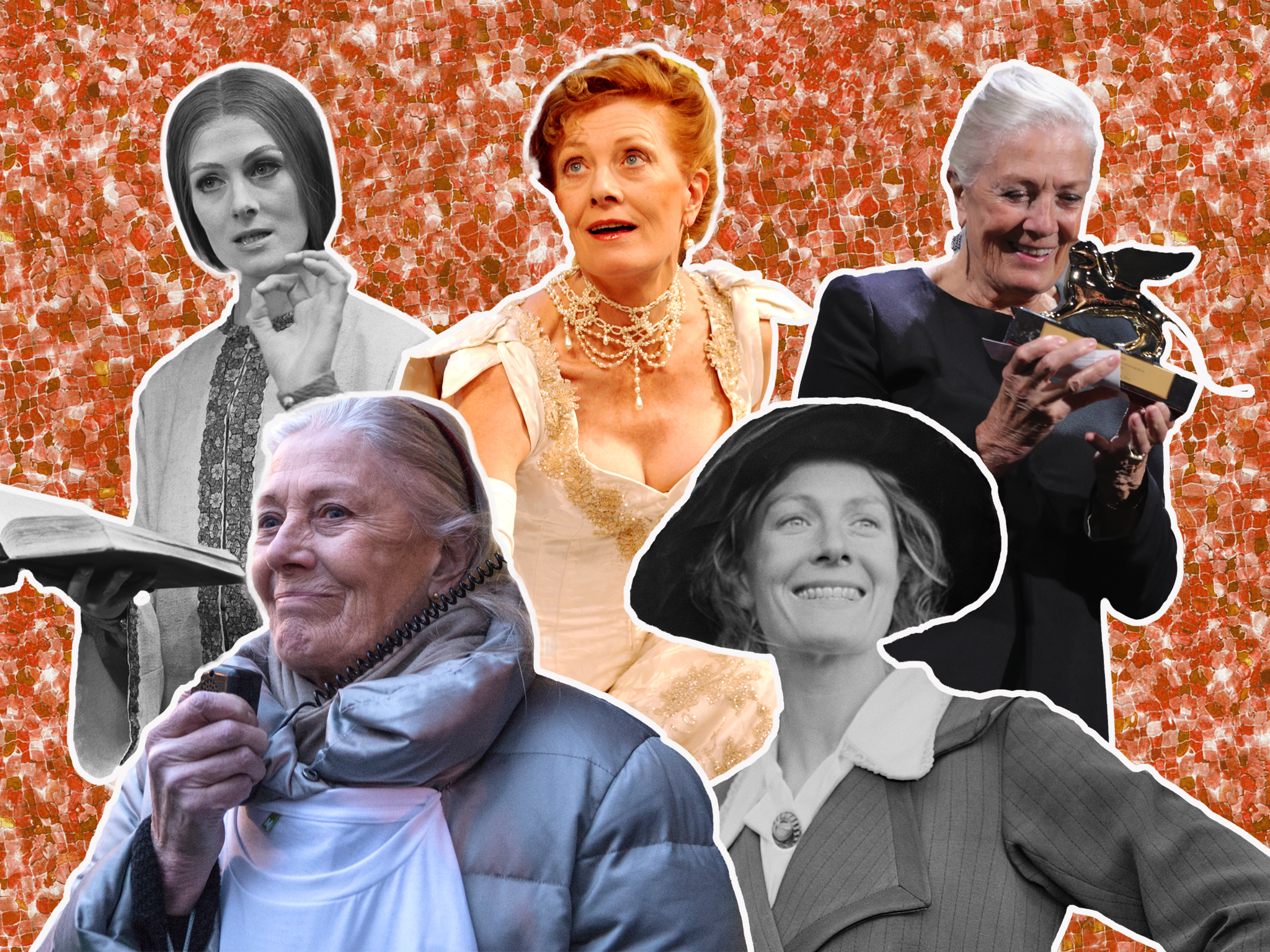
The biggest surprise in the recent New Year Honours List was that Vanessa Redgrave became a dame. She more than deserved it, of course. She has been one of Britain’s finest, most emotionally affecting, intelligent and nuanced actresses for an astonishing 60-plus years. The surprise was that she should suddenly be recognised at the age of 84, when contemporaries such as Maggie Smith, Judi Dench, Helen Mirren, Eileen Atkins and Joan Plowright received the award years ago, and all at much younger ages. Indeed, Kristin Scott Thomas was made a dame at the age of 54.
So why did it take so long for Vanessa Redgrave? After all, it is more than 60 years since her performance as Rosalind in As You Like It mesmerised audiences. It is more than four decades, too, since David Thomson in A Biographical Dictionary of Film described her as “the best actress alive”.
Part of the answer, I would venture, is that she was deliberately ignored for decades because of her politics. In the 1960s and 1970s Redgrave was a member of The Workers’ Revolutionary Party, the far-left organisation, and a publicly vociferous member at that, a constant presence in demonstrations and other shows of activism. Politics was meat and drink to Redgrave, literally at times, as she confessed to having taken to drink when Ted Heath imposed wage controls in the early seventies. Her very first performance in an amateur show at the age of six was to raise money to send ships to help with the fight against Nazi Germany.
The theatre and film worlds are known for voicing strong opinions, of course, but rarely are the actors who sound off as far to the left as Redgrave was. Various governments may have balked at bestowing the highest honour on someone committed to the overthrow of capitalism, no matter her undoubted and breath-taking talent.
Perhaps now, at the age of 84, she is seen as less of a “threat” and the long overdue award has been made. Indeed, her statement on the day the Honours List was published said: “I’m surprised and grateful to join this wondrous group of British artists whose work has inspired me and audiences the world over. My generation fought for freedom of expression. Long may this remain.”
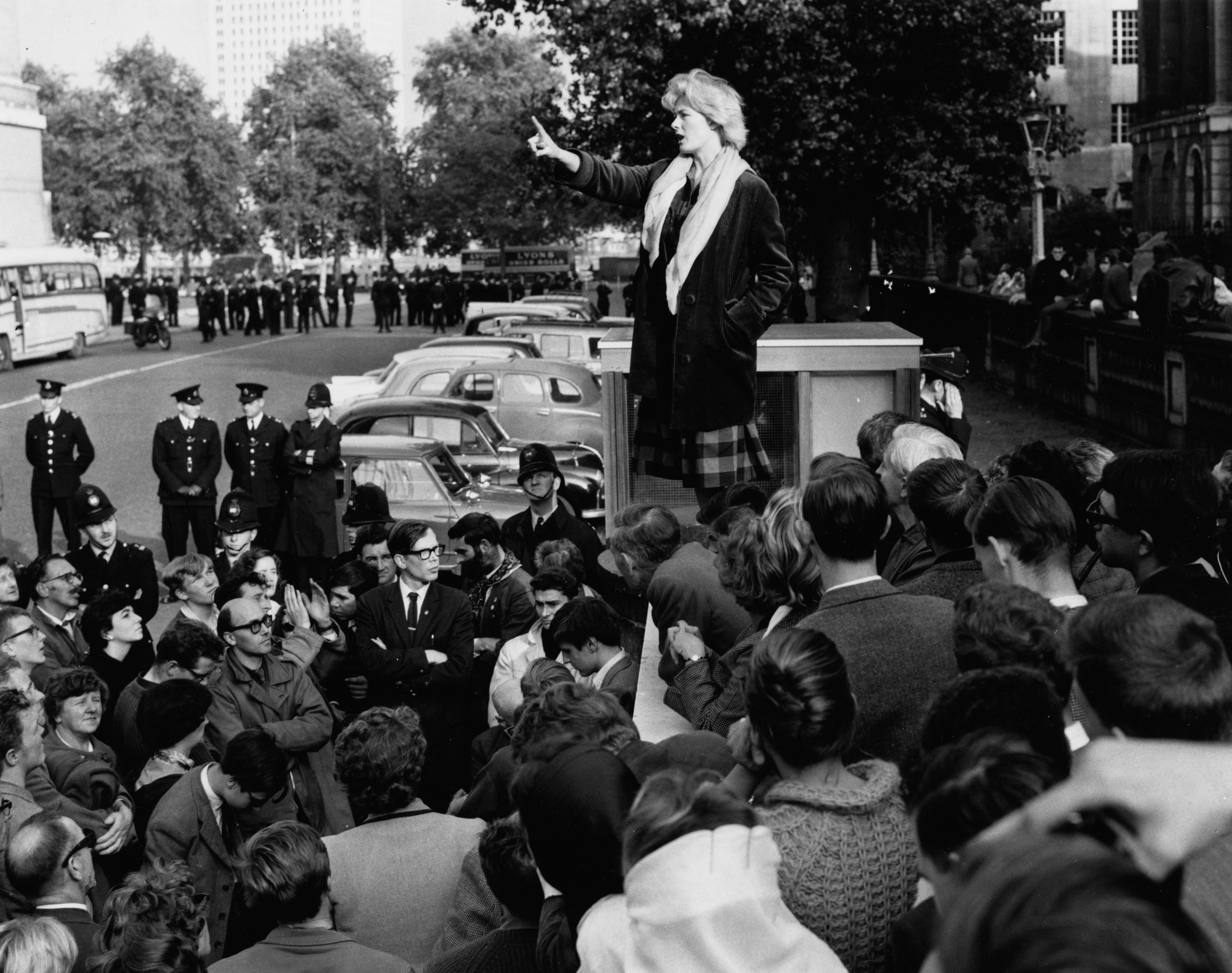
There’s a lot to unpick there. Her choice of the words “freedom of expression” suggests a bigger subject she feels needs to be explored and a barb at those she feels are denying this freedom, though it is unclear whether she has wokery or, more likely, international politics in mind. But the key word in her statement is “surprised”. It is a nice understatement. She has every right to be surprised as it has taken so long.
I would never say I refused an honour from the Queen. But I could not and would not accept any honour from Blair, when he has taken our country, and so many people, to war on the basis of a lie
But, in fact, her politics are only part of the reason. She was offered a damehood before, in 1999, by Tony Blair, and she turned it down … for political reasons. That still leaves the years before 1999 and the years until now. In both those periods it is likely that her extreme politics played a part in her name not appearing on the honours list.
As for that 1999 rejection of a damehood, I was present when she cast some light on this. I was at the Venice Film Festival in 2018 when Redgrave received a lifetime achievement award. In a press conference before receiving the award, she said very little about her acting career. She spoke about the plight of refugees about whom she had made a documentary, saying: “I am trying to speak seriously without swearing because I have this rage inside myself. Because (politicians) have lost the understanding of reality in the world, in their countries, in our countries and in the rest of the world. The have lost the sense of reality. They cannot imagine the reality of being a refugee, being a woman who loses her child at sea.”
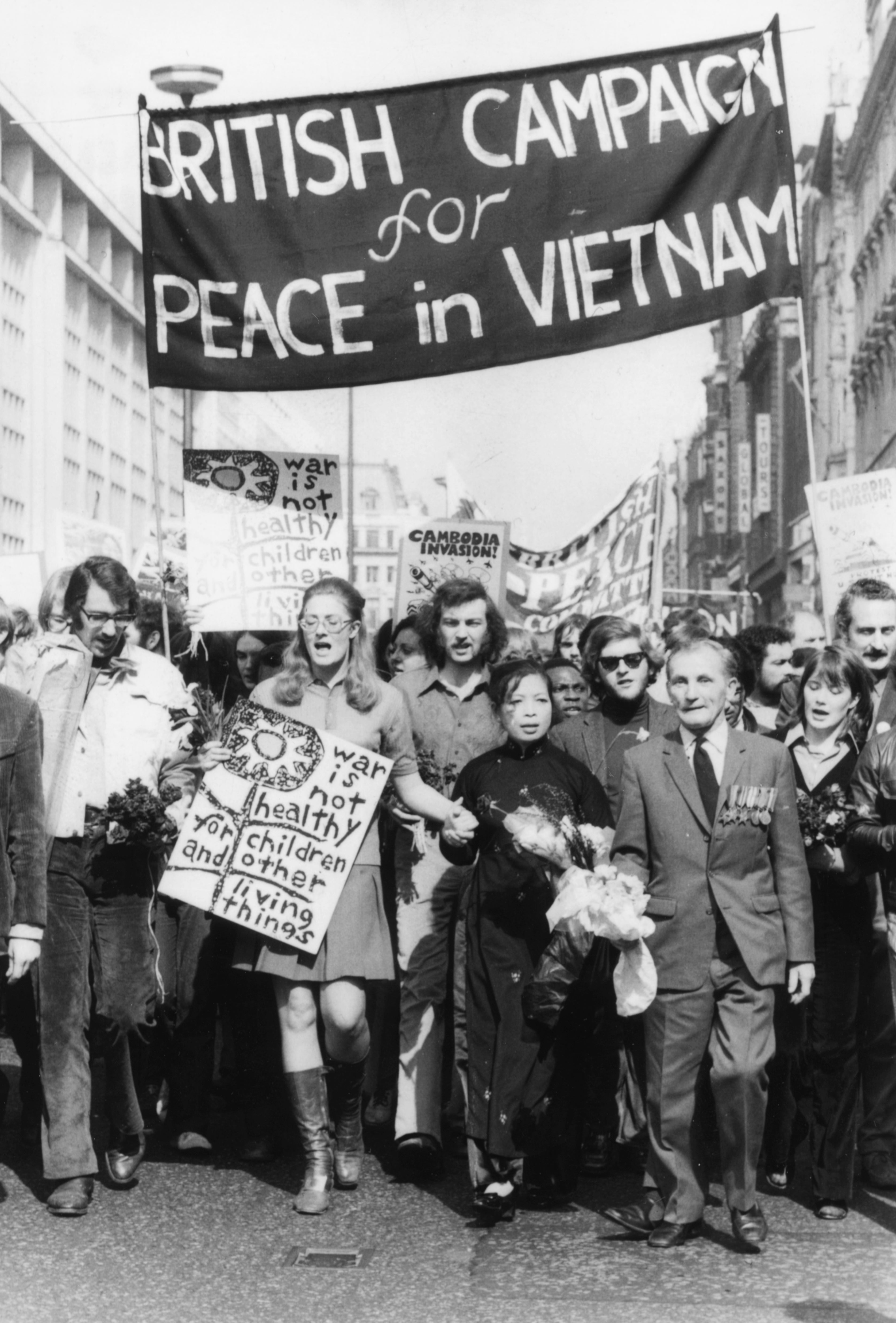
Then, she told how she had turned down the damehood in 1999 because of the Iraq war (even though the Iraq war wasn’t until 2003). She said: “I am not against the royal family. They do many good things, and the royal family in England is one of the red lines that can save England at certain moments. It isn’t the royal family or the queen who offers the honour, it’s the government of the day. So I would never say I refused an honour from the Queen. But I could not and would not accept any honour from Blair, when he has taken our country, and so many people, to war on the basis of a lie.”
Of course, by that logic, she is now accepting an honour from Johnson, which is something that must have given her pause for thought.
But the years of prevarication over Vanessa Redgrave do bring into focus the oddities and the anomalies in the matter of who does and doesn’t receive honours, especially the highest honours. Radical politics on both extremes of the spectrum seem to make honours committees queasy. It was never going to be Sir Tony Benn or Sir Jeremy Corbyn, but nor have we seen Sir Nigel Farage.
5
The number of honours turned down by painter, LS Lowry
Mind you, Tony Benn had no great love of titles. He fought a long but ultimately successful battle to rid himself of the inherited title Viscount Stansgate, which he held from 1960-63, so that he could move from the House of Lords to the House of Commons and resume his career as an MP. Benn had denounced hereditary peerages as “absolutely mad”, making it somewhat ironic that his son Stephen, also a Labour stalwart, just last year joined the House of Lords as Viscount Stansgate.
Radical politics is not the only thing that can exclude you from an honour. I have always wondered why so few comedians make it to an honours list. All other branches of the performing arts are there in numbers. Actors, directors, artists, musicians. But how many titled comedians can you think of? Even among the departed legends there are none. There was no Sir Anthony Aloysius Hancock, no Sir Peter Cook or Sir Dudley Moore, no Sir Benny Hill, no Sir Frankie Howerd, no Sir Max Miller, no Sir Max Wall, no Dames French and Saunders, no Dame Victoria Wood. No knighthoods for Morecambe and Wise, The Two Ronnies, Tommy Cooper. One could go on. Even the living greats such as Rowan Atkinson remain commoners. Only Sir William Connolly seems to have defied the trend.
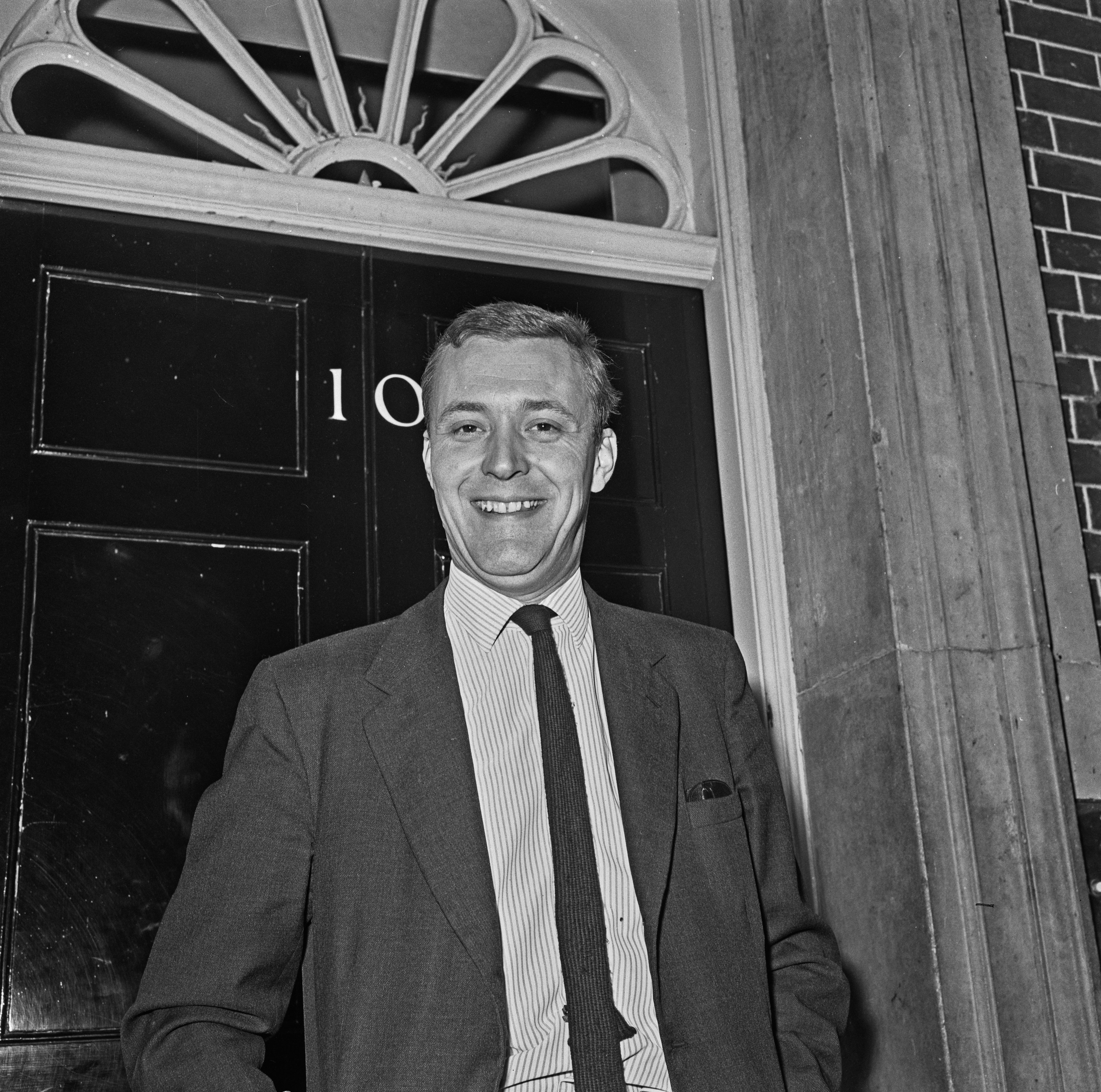
It is possible, even likely, that some turned down an honour. Republicanism, or distaste with the honours system can cause this. It can be particularly prevalent in the arts. The playwright, wit and man of letters Alan Bennett turned down a knighthood, as did Harold Pinter and George Bernard Shaw. More recently, so did the brilliantly eclectic former head of the British Museum and National Gallery, Neil McGregor, and our greatest living painter, David Hockney. Sir David was not something he desired, though he did accept the Order of Merit and Companion of Honour as they are not titles as such.
The record for declining the most honours (five), including a knighthood, goes to another painter LS Lowry, with the touching reason that he saw no point in accepting as his mother was no longer alive to witness it.
Perhaps the best, and certainly most honest, reason for declining a knighthood was given by Formula 1 boss Bernie Ecclestone, who said that while he was glad if he had done some good that had not been his main intention when setting out in business, so he did not deserve the honour.
I am returning this MBE in protest against Britain’s involvement in the Nigeria-Biafra thing, against our support of America in Vietnam, and against ‘Cold Turkey’ slipping down the charts
The sweetest reason for declining a knighthood goes to author and playwright Michael Frayn. He said simply in 2003: “I haven't done this for reasons of modesty. I like the name 'Michael Frayn'; it's a nice little name to run around with. I've spent 70 years getting used to it and I don't want to change it now.”
And my own personal favourite is that given by John Cleese, who refused a peerage in 1999 saying he “did not wish to spend winters in England”. Besides, he had turned down a CBE three years earlier on the grounds that it was “too silly”. Perhaps that might indicate another reason why comedians so rarely become knights. It conflicts with the anarchic and rebellious image necessary for their trade. Ok, Cleese’s fellow Python Michael Palin is a knight, but it was not for his many years in comedy. It was for “services to travel, culture and geography”. And significantly, there have been no knighthoods for the other Pythons, Eric Idle, Terry Gilliam or the late Terry Jones.
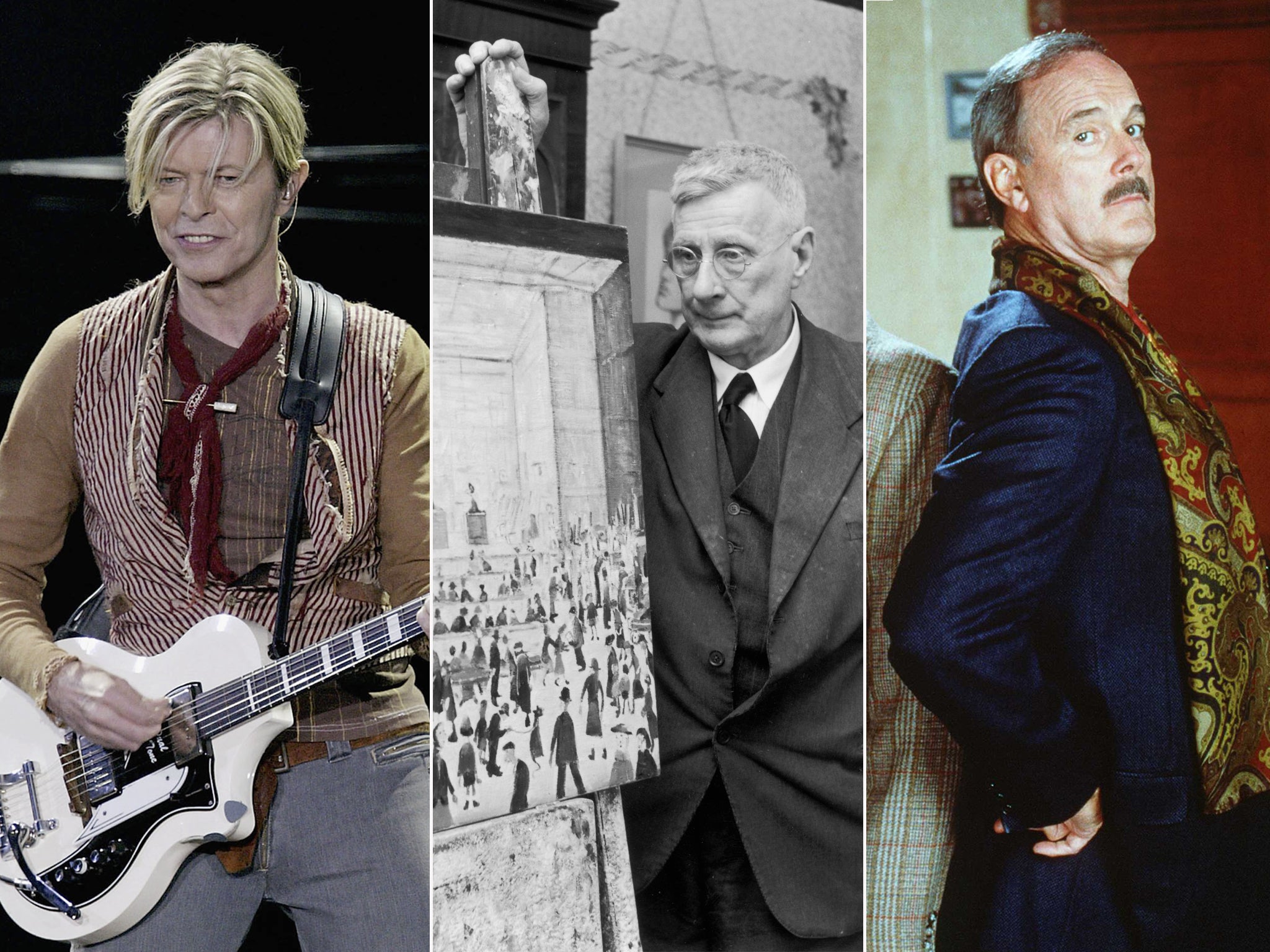
As an aside one might note that every time a famous comedian dies, he or she is described as a “comic genius”. While honours are rarely given to comics, the epithet ‘genius’ is liberally distributed.
One can see a sort of perverse logic in the lack of honours. For stand-up comedians, despite the rare exception of Billy Connolly, an honour and especially a knighthood would be hard to reconcile with the nature of their performance. Can one really stand in a sweaty, intimate venue like The Comedy Store, laying into the government and all its works, while nervously waiting for the first heckler to point out that you are now also a pillar of the establishment? Perhaps comedians and the honours committee both recognise this, and have an unspoken bond to avoid the issue.
One might have thought that such an argument would also apply to rebellious rock musicians but Paul McCartney, Mick Jagger and Ringo Starr are all knights of the realm. David Bowie turned one down in 2003, so the Sir Ziggy Stardust headlines had to be put on permanent hold. And Keith Richards is likely to remain beyond the pale until he reaches Vanessa Redgrave’s age or higher.
Sometimes those who receive an honour end up returning them. The journalist, and former Independent columnist, Yasmin Alibhai-Brown returned her MBE in acknowledgement of her growing republicanism and in protest at the Iraq war. The actor Michael Sheen returned his after researching Wales’s troubled relationship with England. And most famously, in 1969, John Lennon publicly returned his MBE, saying in a letter: “I am returning this MBE in protest against Britain's involvement in the Nigeria-Biafra thing, against our support of America in Vietnam, and against ‘Cold Turkey' slipping down the charts.”
The greatest rejection of a British honour ever was in 1657 when Oliver Cromwell declined the offer of a kingdom. He was already head of state, but parliament decided to offer him the crown as well. This was a tricky one for him as he had been key in abolishing the monarchy after the Civil War. After some deliberation, he stated: “I would not seek to set up that which Providence hath destroyed and laid in the dust, and I would not build Jericho again.”
It's a historic, momentous and lyrical statement, though the lament for ‘Cold Turkey’ slipping down the charts is pithier.
Join our commenting forum
Join thought-provoking conversations, follow other Independent readers and see their replies
Comments



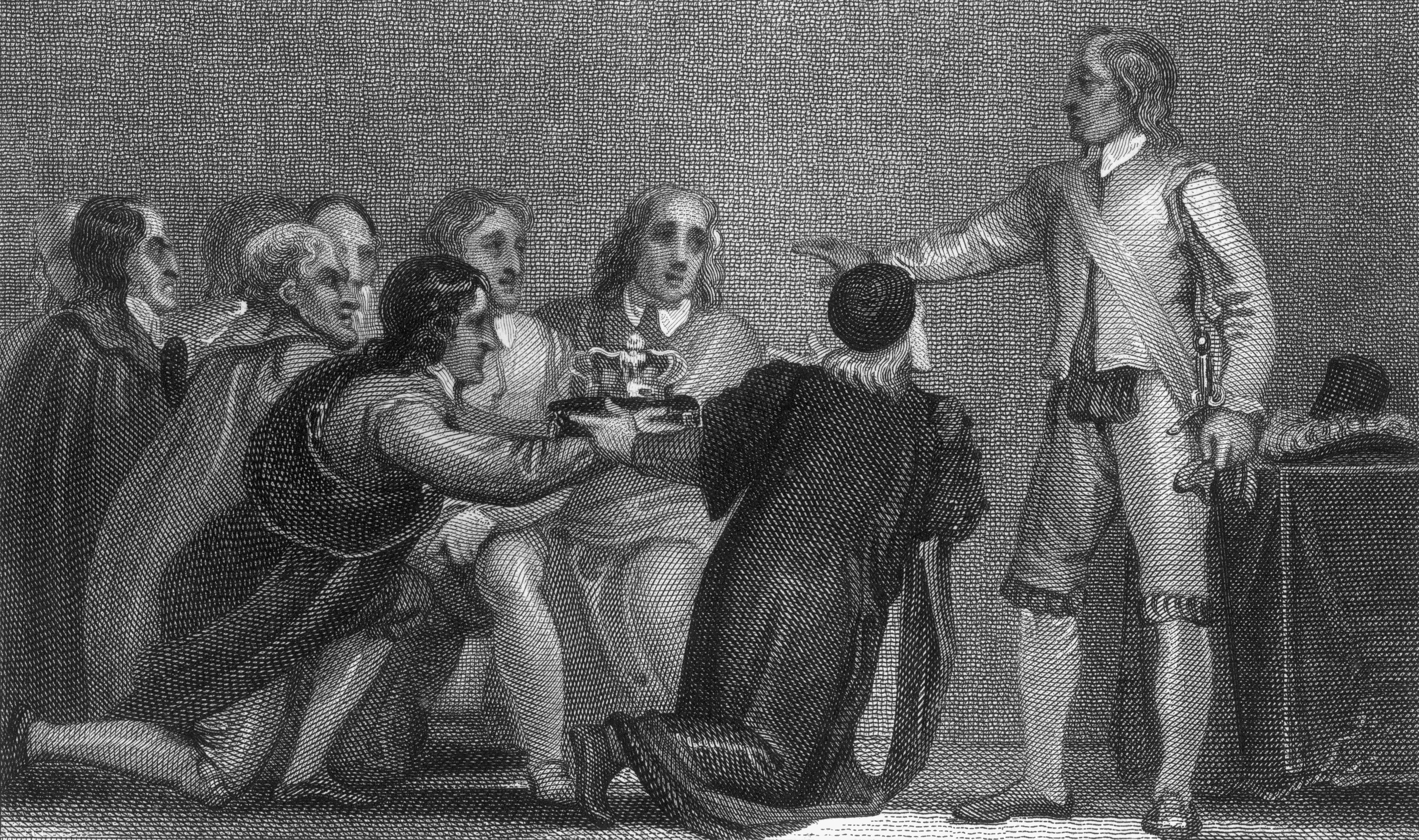
Bookmark popover
Removed from bookmarks